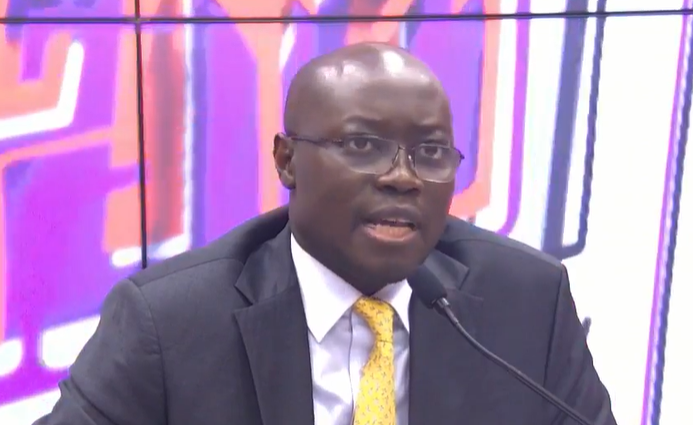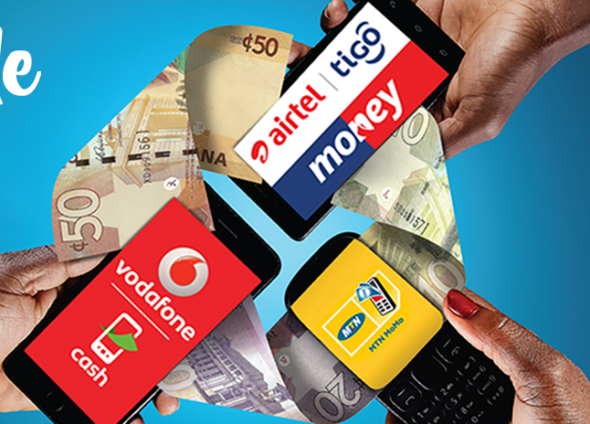Former Deputy Finance Minister, Dr Cassiel Ato Forson says the Electronic Transfer Levy (e-levy) was bound to fail before its implementation.
According to him, all indicators pointed to failure, so he warned government about the policy's estimated ambition.
“They failed to recognise that mobile money is a choice and there are some elasticities, and it is important that when coming out with the revenue estimation, they would have to factor in the behaviour of customers when taxes are imposed at that high level,” he explained.
The controversial revenue measure was introduced by government in the 2022 budget, with some ¢4.9 billion expected to be collected by the end of the first year.

It was expected to replenish government’s revenue sack and shield the country from a possible IMF bailout.
But close to two months of implementation, the levy has generated less than ¢60 million, according to a leading member of the New Patriotic Party (NPP), Gabby Otchere-Darko.
He said the levy has failed to live up to the expectations of the government.
“What options are open to the government? The question should be: what option, if adopted, will re-inject investor confidence in our economy?
"Even if we find the $3 to 5 billion required, will that help? E-levy, which was to have given us some ¢600 million by now, has done less than ¢60 million,” he said in a tweet on Monday, June 27.
In an interview on Joy FM’s Top Story on Monday, he said that the structural design of the levy is very ‘problematic’ and, therefore, not surprised at the outcome.
Dr Forson added that he had questioned the policy from its initial stage, and “I have said that e-levy in itself was bound to fail from the beginning.”
The Ranking Member on Parliament's Finance Committee urged government to embrace the economic support from the International Monetary Fund (IMF).
Meanwhile, Associate Professor at the University of Ghana Business School (UGBS), Prof. Lord Mensah, has said it is too early for anyone to rate the Electronic Transactions Levy (E-levy) performance.
He argued that government should wait till the end of the year to decide on the performance of the levy.
“Probably it might be too early because normally when you issue a levy of that form, you are going to get reactions from the market, so we may have to give ourselves some time before we can decide that we want to go to the IMF or not.
“Not making up to the expected revenue of the E-levy, I would say that is too early. Let us wait; we have more time. If we think E-levy is the ultimate, let us hold on and then make sure that by the end of the year, we come out to say whether it is performing or not,” he said.
Latest Stories
-
A new chapter for African women’s football with CAF U17 GIFT kick-off in Tanzania
10 minutes -
Exit of multinational firms due to high inflation, currency weakness – Deloitte
10 minutes -
Constitution’s impeachment provisions for Chief Justice are ‘inadequate’, says Sophia Akuffo
20 minutes -
We won’t be a disruptive Minority but will serve the interest of Ghanaians – Gideon Boako
37 minutes -
‘Merit over patronage’ – Sophia Akuffo calls for overhaul of Chief Justice selection process
43 minutes -
GPL: You have benefited from refereeing decisions – Dreams FC slams Accra Lions for calling for reforms
57 minutes -
Deschamps to leave France job after 2026 World Cup
1 hour -
NCCE congratulates Mahama, calls for unity and post-election collaboration
3 hours -
‘Democracy must work for the people’ – Mahama promises tangible change as he resets Ghana
3 hours -
Why Akufo-Addo calls me Johnny – Mahama reflects on rivalry, respect, and history
4 hours -
‘A beacon of hope’ – Prof. Opoku-Agyemang’s rise lauded by NDC Professionals Women
4 hours -
Ghana’s leadership a beacon of hope for Africa – Tinubu
4 hours -
Explosive fertiliser in Ivory Coast harbour nothing to fear, officials say
5 hours -
Nigerian atheist freed from prison but fears for his life
5 hours -
Djokovic still has ‘trauma’ over Covid deportation
5 hours

